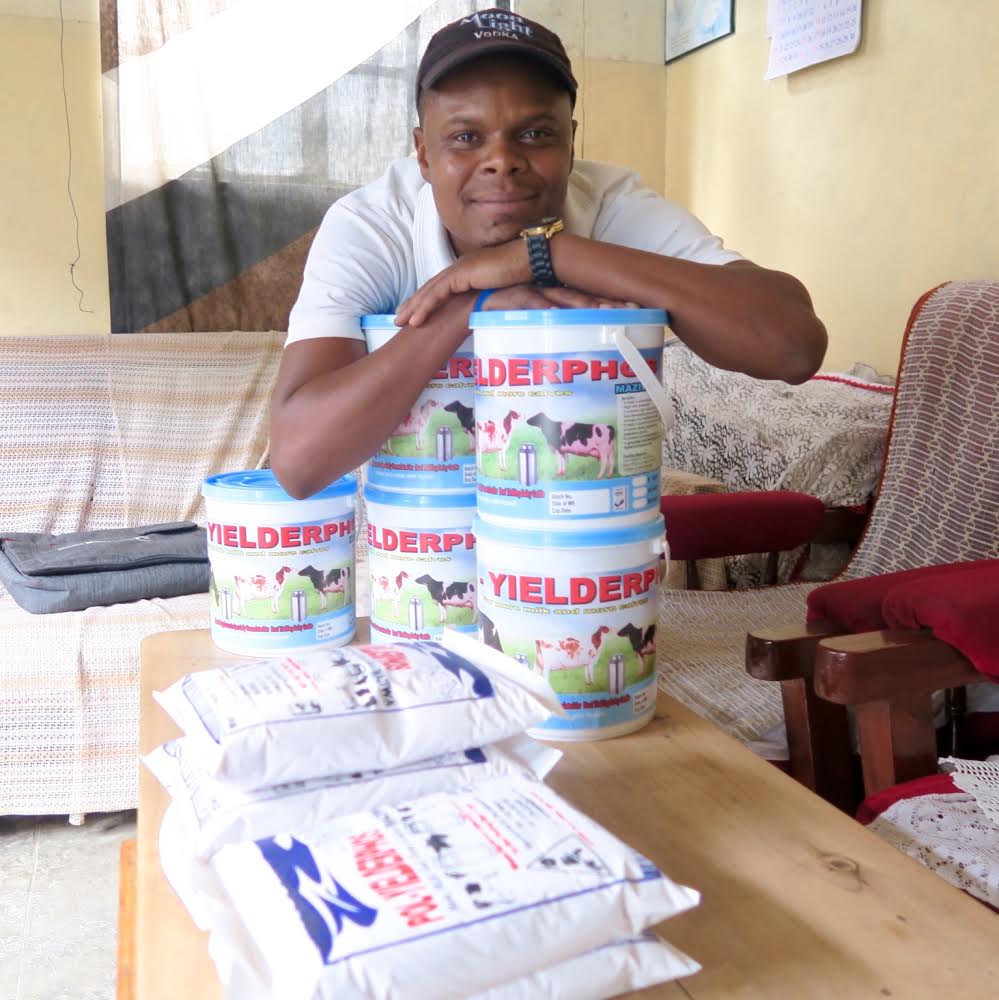Farmers can cut milk production costs by a third by making their own dairy feeds at home instead of buying them as the Association of Kenya Feed Manufacturers says the cost of imported grain used to make feeds has increased from Sh1400 to Sh2,100.
The cost of producing one liter of milk in Kenyan is estimated at Sh21 by the Ministry of Agriculture. In this, farmers can cut production cost of one liter of milk by making own feeds from Sh21 to Sh14 therefore earning seven shillings more per liter.
Research by the Kenya Agricultural and Livestock Research Organization reveals that commercial feed supplements such as the dairy meal are estimated to cost roughly 20 per cent of the total cost of milk production hence reducing farmers’ profits.
To curb this, farmers can make dairy supplements using locally available energy feeds such as the maize germ, maize bran, wheat bran, molasses and wheat pollard. For protein feeds they can use lucerne hay, cotton seed cake, soy bean meal, sunflower seed cake, calliandra leaves or fish meal while minerals can be obtained from limestone and rock phosphate.
Related content
Lawyer banks on nutritious value of camel milk, builds processing factory at Nanyuki
Bidco introduces poultry feeds that reduce maturity period in kienyeji chicken, increasing yields
Manual chicken feed mixing machine cuts buying cost by 30-50 per cent

Apollo Kariuki showcases his own made animal feeds. Farmbiz Africa
To make 100kg of dairy feed supplement for instance you will use 75kg of energy feeds, 23kg of protein feeds and two kilos of minerals. This may include 57kg of maize germ, 18kg of wheat pollard, 17kg of lucerne hay, six kilos of soya meal and two kilos of di-calcium phosphate and this will cost a total of Sh1900.
A 70kg bag of dairy meal is currently retailing at Sh2,300 meaning with homemade feeds farmers can save Sh400.
The quantity of milk delivered to dairy processors recorded a significant drop of 17.4 per cent from 648.2m liters in 2016 to 535.7m liters in 2017 according to the 2018 economic survey report.
In this, the quantity of processed milk and cream from processing plants decreased by 8.5 per cent and that of butter and ghee declined by 22 per cent. Production of cheese however, increased from 311.2 tonnes in 2016 to 338.3 tonnes in 2017.
















Comments powered by CComment